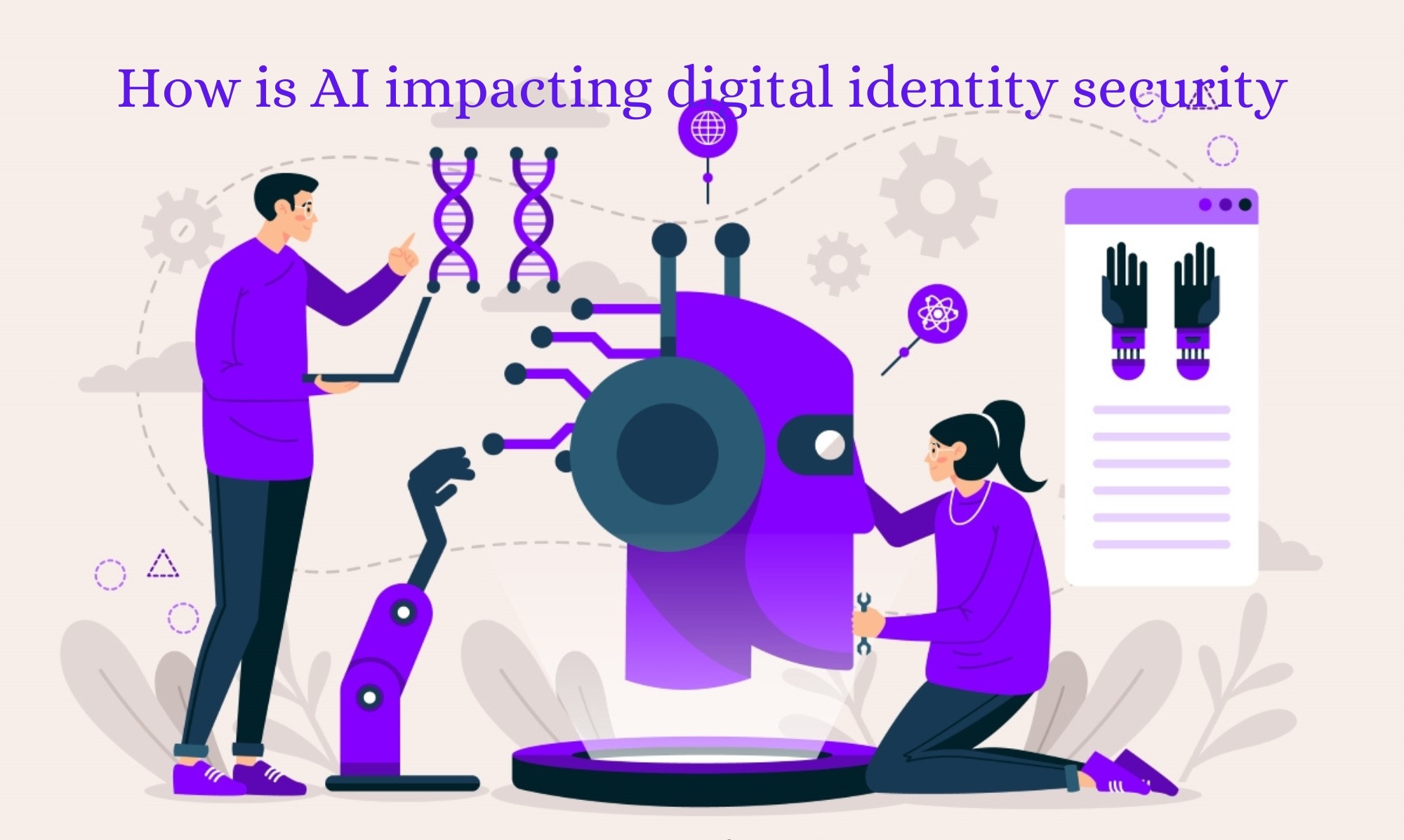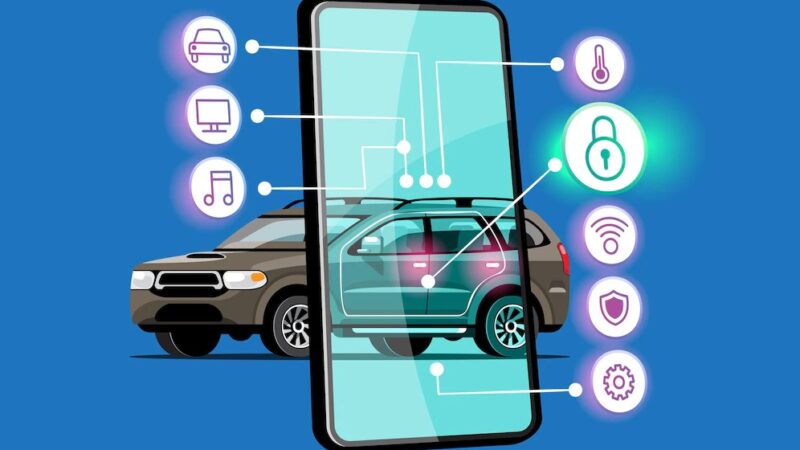How is AI impacting digital identity security?

Artificial intelligence (AI) is continuously dominating every industry due to its immense applications, and scalability towards business growth. Companies are utilizing this future technology to attain a step ahead of the competition. From mobile apps to drones, integration of Face AI is shaping the way global businesses and entities streamline their processes.
However, the question arises – what impact Ai will have on our digital identities? Will our facial scans, digital fingerprints or optical identities be safe with AI applications.
There is increased potential for identity theft and cybercrime as more businesses move their business models online and use new technologies. The Federal Trade Commission (FTC) predicted a loss of $13.4 million to Covid-19 frauds as of April 15, 2020, therefore the proliferation of Covid-19 has only made it worse.
Because of this, protecting one’s online identity is more crucial than ever. Additionally, identity identification is entering a new age. The usage of artificial intelligence (AI) with biometrics has enabled consumers to benefit from more secure procedures that are also more efficient.
Artificial intelligence enables zero-trust identity
This market will once again migrate to zero-trust identity (ZTI) with the inclusion of AI to digital identification. Because businesses want to utilize technology to ease the shift to hybrid work, zero trust is undoubtedly a hot issue.
The majority of zero trust operations take place at the network layer, however this presents challenges since it is simple for malicious actors to elude detection. The digital identity is followed when zero trust is applied in identity.
Maler used the recently announced AI/ML-based Autonomous Access solution from ForgeRock as an example. All the signals connected to a user’s digital identity are processed to either grant them smooth access, step in with authentication when necessary, or prohibit them when they are fraudulent.
Industries under threat of digital identity fraud
The following are some of the key sectors most vulnerable to digital identity fraud and the reasons they should use cutting-edge AI solutions:
- Financial service providers: To open accounts and transfer money securely.
- Automobile industry: To safeguard private data, such as driver’s licenses.
- Insurance: The ability to securely read insurance contracts online and do insurance-related research online.
- Entertainment: To ensure there are no phony profiles and that rules, including the minimum age requirement, are followed.
- E-commerce: To guarantee the security of credit services, payment methods, and personal profile information.
- Education: Verification of students using online resources and taking online tests in the educational sector.
- Logistics: To ensure every fleet data, drivers’ information, dashboard reports, and warehouse management systems remain secure.
How AI Secures Data and Identities?
Digital identity fraud may impact a variety of companies, markets, and people. There are several ways a cybercriminal can utilize someone’s personal data if they take it. Here are a few ways AI may aid in protecting digital identities and data.
1- Preventing identity theft
When it comes to confirming a person’s identification, AI delivers improved accuracy and speed. Organizations may better safeguard digital identities by utilizing AI to prevent illegal access to their systems.
Your ID usage can be tracked in real time by specialized tools, improving AI security outcomes. Cybercriminals have a much harder time using more complex systems that use real-time and biometric data.
For instance, face recognition, AI, and biometric data prevent identity theft since they make it more difficult for thieves to access information by using just their credentials. AI-enabled app like FaceApp utilizes digital identities such as face and eyes to create virtual identities of the same person just for entertainment purposes.
But these experiments raised questions on the originality of identities for every individual. Businesses can make sure to enable AI not to alter actual dimensions of the digital identities to prevent any duplication.
2- Protecting air passengers
In comparison to human labor, AI delivers a procedure that is more precise and efficient. AI-based identity identification for airline passengers may result in an easier ID verification procedure. While the technologies can offer an optimal rate of verifications, air passenger data remains safe.
Moreover, AI can also help in detecting health risks of the passengers while giving accurate measures to treat them. AI-based health detectors can be implemented in this case and make them more reliable for use.
3- Analyzing telecom networks
The telecom sector is experiencing substantial expansion because of artificial intelligence. Massive amounts of data may be quickly processed and analyzed by AI to produce insightful findings. Additionally, machine learning and AI make it simpler to create algorithms that can detect unauthorized network activity.
These algorithms are trained to recognize typical trends from aberrant ones. As a result, they can recognize and investigate irregularities that can result from fraudulent activity.
4- Reducing financial fraud
One of the most pressing types of internet fraud is financial crime. AI can significantly enhance fraud detection and safeguard sensitive data. AI can evaluate enormous volumes of transaction data, including harmful transactions, in real time and enables more accurate data analysis.
Additionally, fraud may be instantaneously detected by advanced AI technology. By preventing identity fraud and sophisticated misuse assaults, this can support fraud analysts in their work.
5- Biometric authentication
A multifactor authentication approach for more secure identity verification is provided using biometrics. Artificial can improve biometrics even more and support the creation of data-driven security procedures.
For instance, AI may take the recorded biometric data and effectively evaluate and process it for a streamlined security result if a system maintains behavioral biometric activity in a database. Any differences that point to fraud or identity theft can then be found.
Final Thoughts
The globe can thankfully be protected against digital identity fraud thanks to AI. It is already a potent tool in the battle against identity theft. Since AI systems can already find potential security holes in the code even before a software application has been launched, they are quite likely to put an end to the reign of the lone hacker.
Although AI authentication is still in its infancy, businesses can implement it by integrating intelligent adaptive authentication, which uses location and device fingerprints to identify the user and initiate MFA, biometric authentication, which uses a user’s face or fingerprints to identify them, and smart data filters, which identify identity fraud IPs, fraud domains, and fake user data, among other things.
An AI-integrated security platform will prevent security risks and data leaks. To cut expenses and the possibility of human mistakes, the human developer community will increasingly rely on automatic AI code evaluations.
For a more in-depth understanding, I recommend reading our blog post on Know About FaceApp: AI Changing Reality.
_____________________________________________
Author’ bio:
Being a tech-enthusiast, I always research about the latest topics around AI, machine learning, big data, business automation and other tech-related topics. While I ideate and strategize strategies to implement and utilize trending technologies for optimizing business processes, my aim is to attain an understanding level that can help me learn and adapt to future technologies.







